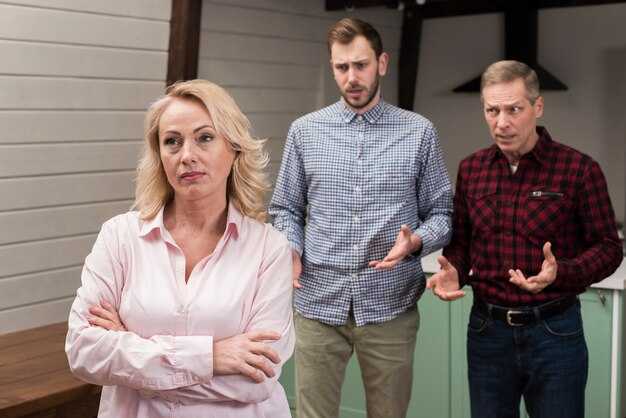I receive hundreds of messages from viewers each month—far more than I can respond to personally. When I choose which ones to address on YouTube, some letters I initially pass on keep returning to me, nagging at my mind. I find myself replaying the person’s story, the mystery of their pain, and the fragile promise of their future. Funny thing: the letters that haunt me the most often turn out to be the ones that have the deepest impact on everyone watching. I first noticed that a few years ago when I finally published an extraordinary letter from a woman; I had originally called it “How to Know What You Really Want.” It struck a chord with so many people.
So how do you tell when something truly fits you? For someone who experienced trauma in childhood, the inner sense that should tell you “this is right” — a kind of built-in compass that signals harmony, attraction, or an opportunity worth taking — can become dulled or give misleading signals. Childhood abuse and neglect can do that: not only can you walk into situations that are wrong for you, you may also develop an aversion to genuinely kind people or positive opportunities. Over time, that can lead to choices driven by others’ expectations or by survival strategies rather than by your own heart. The result can be a life that feels wrong and full of regret.
That’s exactly what happened to a woman who wrote to me recently—I’ll call her Christina. Her letter is long, and I wanted to include most of it because it paints the picture so clearly. She writes:
Dear Anna, I’m a high-school teacher and a part-time university lecturer in southern Europe. I grew up in a household where illness—physical and mental—was common. There were early deaths, aggressive behavior, money troubles and emotional abuse; that chaos was normal. From the age of nine I developed eating disorders, skin problems, poor eyesight, anxiety and depression. Things fluctuated over the years but peace never arrived. Fortunately, I did very well at school, which helped me hide what was going on inside and imagine I was fine. For a long time I resisted the idea of therapy until I finally agreed when I started thinking about my own death daily. Now I see a wonderful psychologist. Even while I’m gaining clarity, I still struggle with anxiety, depression, unhealthy eating, overwhelm, a sense of being unable to cope, and feeling detached and unworthy of a normal life.
Lately I’ve realized I’ve been sabotaging myself for years. To give a few examples: a couple of years ago I had a chance to work at a prestigious university abroad, but I made excuses not to go. Three years ago I could have married a man who had loved me deeply and sincerely since we were 18, but I left him. Every time he tried to reconnect I pushed him away. In all those positive moments that might have built a better life, instead of feeling happy or grateful I felt anger, disgust, irritation and indifference for reasons I didn’t understand. Only now do I see that pattern, and I regret those choices so deeply I cannot forgive myself.
My deepest regret is not marrying that wonderful man—I’ll call him Guy—who waited patiently, built his career from scratch, and was ready to love me despite my depression, anxiety and difficult family. When we were a couple I fell for another man but remained faithful to Guy until I broke up with him; five years later we tried again, and I left again, though we stayed friends. We entered other relationships until three years ago Guy came back with serious intentions. Once more I felt cold and distant; the more love and attention he showed, the more irritated I became, and I started dating men who never committed. I am ashamed to admit this behavior, but I now recognize I was terrified of attachment, intimacy and commitment. Guy is happily married and runs his own engineering company. When I learned he was married, the realization of what I’d lost hit me like a wave: everything I felt for him, which I had buried, came back and crushed me. I cried for days. I try to soothe my regret with prayers—I pray for his and his wife’s happiness, success, children and good friends. At the same time I feel hopeless: I’ve ruined God’s plan for my life; I’ve wrecked my life’s course and don’t deserve anything because I caused my own suffering.
I think I should have chosen a different university faculty, a different career, a different city, different friends—many of whom didn’t seem to want what was best for me. I’m 34 and feel too old to find a good man, to start a family, to change my job, to change my life, or even to figure out what I truly want. Often I feel that even if I met a good man I wouldn’t be capable of healthy commitment, fidelity, or sincere love. I feel empty, trapped by sorrow, as if there is an invisible pane of glass between me and other people. I isolate because I cannot tolerate others for long; I can never be fully myself. Even when I’m not lying, I feel fake. A recent small party at a friend’s—people I knew and liked—left me so stressed I cried when I got home. I see time slipping past, my life passing by, and I feel an unstoppable progression toward loneliness, aging, the wrong career, no family and no close friends.
I’ve always had trouble knowing what I wanted, both for major decisions and small ones. Even now I question whether teaching is the right job: at school I’m disgusted by the environment, at university I tell myself I don’t care about what I teach. I lack motivation, so I don’t progress in either direction. I go through days convinced I’m in the wrong place, unsuited to my jobs, having chosen the wrong path, and wish I could throw the last 15 years into a blender and pick completely different choices in every area of life. How can I tell which thoughts and feelings are real and which are false? How can I fall in love again when I feel so distant, hopeless and cold? How can I know if I’m on the right path when all these feelings and thoughts collide in my mind? Will I ever find my purpose and the life I’m meant to lead, even though I’m not a young girl anymore? Thank you in advance for your reply. With gratitude, Christina.
Christina, I am so sorry for the pain you’ve been carrying. I’ll try to offer a bit of perspective by going back over your letter and pointing out what I see. It’s good that you’re working with a therapist—hopefully that help is addressing the deep depression you mention. Much of what you describe—anxiety, low mood, physical symptoms—are common manifestations of depression, so getting clinical support is important. You’ve also started to spot the patterns in your life, and awareness is a huge step. Now the question is what to do next, and I want to suggest a few things.
You said you were always a high achiever at school while living in a household full of illness, death, aggression, money problems and emotional abuse—nonstop drama that caused you to develop physical symptoms, anxiety and depression as a child. To cope, you became a high achiever, which gave you a kind of mastery and external validation. Coping strategies vary—some people turn to drugs or crime—yours was schooling and performance. That can still leave a sense of emptiness and drive, but at least it led to a stable job. So first: be proud that you did well enough to become a professor and a high-school teacher, and proud that you sought therapy.
You pointed to two big decisions you regret: turning down a prestigious job abroad and letting the man who loved you walk away. It’s tempting to label what you experienced as self-sabotage. Yet another possibility is that the problem wasn’t active sabotage but that you simply didn’t want those things. Sometimes people stay with the idea that they “should” want someone or a life path because it looks correct on paper, when inwardly they’re not feeling it. Take the man who loved you: he may have been a wonderful partner, but maybe you weren’t actually in love with him. That happens all the time. Falling in love can sweep away ambivalence; if you never felt that spontaneous pull toward him, your reactions—coldness, irritation—may have been honest signals, not just avoidance.
Childhood trauma complicates this. When a child grows up surrounded by crisis—sickness, money worries, emotional harm—they rarely receive the simple validating response a child needs: “I see you, I feel you, I’ll help.” Without that, you learn to hide parts of yourself to survive. You learned to meet expectations, minimize drama and seek approval. That was an adaptive strategy in childhood but becomes limiting in adulthood. The good news is that 34 is not too late. Many people wake up in their late 20s to mid-30s and realize something isn’t working, and that’s the moment real change can begin. Plenty of people find meaningful shifts later in life; some don’t find ease until their 30s, 40s or beyond. There’s time to change your job, location, relationships and priorities.
Think about your history of being validated for academic success—teaching is a logical extension of being a successful student. That may be why teaching felt safe: it fit the role that once protected you. But as you grow free from the need for approval, you may discover new work that better aligns with your true interests. It might be that the prestigious university job didn’t appeal because deep down you sensed it would commit you to a path that wasn’t yours. If a voice inside you whispered, “This isn’t what I actually want,” that thought deserves respect rather than automatic dismissal.
You still have time to build a family if you want, and you’re already taking important steps: therapy, writing this letter, joining communities for people with difficult childhoods. Those are brave moves. Happiness may be closer than you think; what stands between you and it are the choices you’ve made so far, but there’s no shame in that. People change careers, shift paths and find new joy. Personal growth is often a series of trial-and-error attempts.
If you’re unsure where to start, here’s a simple practical method that’s helped many: write down your wildest, most specific dreams for the life that would make you happiest if money weren’t an issue. Describe the details—where do you live, what’s a typical day, who’s around you, what do you do for fun and exercise, who’s in your life, who isn’t. Don’t worry about logistics yet; the point is to clarify what you genuinely want. Once that is on paper, identify one tiny action you can take today that nudges you toward that vision. It might be a 20-minute Google search about a new field, contacting someone who made a late career change, or looking up schools or communities in a place you’ve always wondered about. Small steps open your mind to new possibilities. They don’t have to be grand or immediate commitments—just small experiments that expand your sense of what’s possible.
Another tool to consider is a daily practice I teach. It’s a once-a-day exercise to get fearful and resentful thoughts out of your head and onto the page. You said you don’t know which thoughts are accurate and which are products of your past, and that’s common in people with childhood trauma. Initially, you might feel “a pane of glass” separating you from others—a numbness or disconnection. For some, that started in a degrading relationship or in the hard years of childhood. Speaking honestly about your sadness, anger and desires, with someone you trust, can begin to remove that separation. Try being radically honest, at least in one supportive relationship or with a therapist who will push you to brainstorm alternatives to your current path and encourage you to explore what you might truly enjoy.
The daily written practice isn’t just journaling. It’s a specific technique to list resentments and fears and then offer them up, a bit like a prayer if you’re spiritually inclined. After writing, sit quietly for about twenty minutes—not necessarily focusing on breath or emptying your mind, just resting. Often, once the knot of fear and resentment is on the page, the mind becomes a little quieter. In that quieter state you’ll get clearer impulses and small inner voices that point toward what might be right for you. Childhood trauma rewires the nervous system, so when fear and resentment dominate, thinking, mood and physiology are all affected. Reducing that noise helps your natural instincts and intelligence emerge.
There’s also a healthy way to move on from the man who married someone else. It’s a sign of emotional maturity that you pray for his happiness. At some point, though, it helps to intentionally stop dwelling on that chapter—accept that it’s closed and redirect your energy. Replaying his relationship will keep you stuck. Notice when thoughts of him arise and gently steer your mind elsewhere, just as you would learn to stop repeatedly touching a broken tooth with your tongue. Loss of a potential love is painful, but remembering often doesn’t reveal a final “why” beyond the fact that those events happened in your past. Whether or not that relationship was “the one,” the next step is to heal the trauma so you can start forming relationships that feel right in the present. A healthy match doesn’t require conscious forcing; when the fit is genuine, there’s often an effortless quality to how you fall into it.
From what you describe, it feels like you didn’t get enough chances to experiment and make choices for yourself when you were young, and now the role you learned to play is making it hard to choose things that truly satisfy you. That can change. Start with tiny experiments in the direction that sounds appealing—let yourself try, decide you don’t like it, and try something else without fear. If you only make choices based on avoidance or habit, you risk becoming passive. The daily practice and honest conversations with supportive people are concrete tools that help you move away from that.
If you have a spiritual practice, you can use the writing exercise as a prayer: identify the negative tangled thoughts and ask for help letting them go. After writing, rest; often clarity and gentle impulses emerge. When fear and resentment lessen, the wind begins to fill the sails of your life and you drift more easily toward experiences that suit you. Over time, life stops feeling like an uphill battle and starts to feel like a current you can float with, making it easier to try new things and gravitate toward commitments that truly fit.
One last important point: don’t let the question “Am I doing the right thing?” paralyze you into solitude. If you keep taking small actions, surrendering fear and resentment, attending therapy, and sharing honestly with others, progress will come. You’ll learn to try new things, reject what doesn’t fit, and keep exploring. The ultimate aim isn’t only to feel better, to get a partner, or to find the perfect job—it’s to become your authentic self and use your gifts in the world. That’s where lasting satisfaction lives.
You’re asking the right questions, Christina, and you’re already partway up the hill. With steady support and small practical steps you can begin to enjoy life and discover the things that bring you joy. If you think childhood trauma has kept you from the path you’re meant for, consider taking a CPTSD quiz as a starting point; it can help clarify where to focus your next steps. Wishing you every good thing. [Music]


 Co robić, gdy nie wiesz, czego naprawdę chcesz">
Co robić, gdy nie wiesz, czego naprawdę chcesz">

 Oszukiwanie to nie JEDYNY sposób, w jaki się nawzajem ZDRADZAMY.">
Oszukiwanie to nie JEDYNY sposób, w jaki się nawzajem ZDRADZAMY.">
 Kiedy Niepokojny Partner Wreszcie Wyrwie Się z Unikańczym">
Kiedy Niepokojny Partner Wreszcie Wyrwie Się z Unikańczym">
 Relacje są ZWYSTĘPIONE bez TEGO!!">
Relacje są ZWYSTĘPIONE bez TEGO!!">
 Dlaczego związki działają tylko wtedy, gdy masz granice (kompilacja 4 filmów)">
Dlaczego związki działają tylko wtedy, gdy masz granice (kompilacja 4 filmów)">
 7 oznak, że partner unikający przygotowuje się do odejścia (ostatnia boli najbardziej)">
7 oznak, że partner unikający przygotowuje się do odejścia (ostatnia boli najbardziej)">
 Jeśli ciężko pracujesz nad uzdrowieniem, ale szczęście nigdzie nie widać, spróbuj TO.">
Jeśli ciężko pracujesz nad uzdrowieniem, ale szczęście nigdzie nie widać, spróbuj TO.">
 Uratowałem swój związek, robiąc TO">
Uratowałem swój związek, robiąc TO">
 How to Stand up to Toxic In-laws">
How to Stand up to Toxic In-laws">
 The Secret to Getting What You Really WANT (and Stop Playing SMALL)">
The Secret to Getting What You Really WANT (and Stop Playing SMALL)">
 Here’s What It Takes to Face the Truth and Step Up Into Your Life">
Here’s What It Takes to Face the Truth and Step Up Into Your Life">